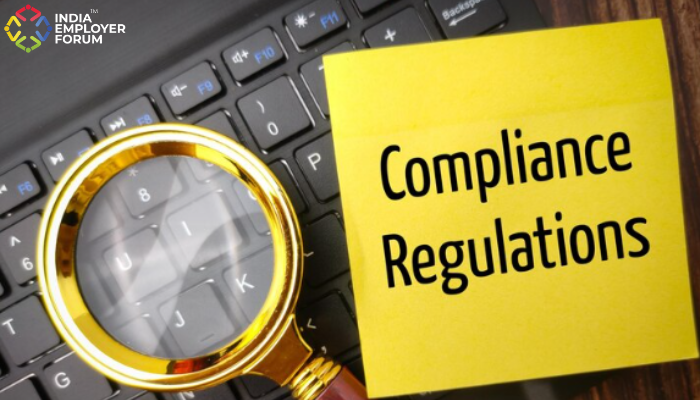No one could have anticipated that they would have to deal with such testing times in 2020, not at the turn of the year at least. But, the pandemic happened, and it changed almost every aspect of every individual’s personal and professional life. It took just a year or so to completely transform the business world. There were disruptions that every business had to deal with and is continuing to deal with. Those disruptions made them reconsider and rejig their employee benefits and compensation.
Organizations now have to consider special employee needs regarding the pandemic to draft employee benefits programs. Organizations also need to understand that the priorities of their employees and what they expect from their employers have changed irrevocably. And this change has been brought up by what employees had experienced during the pandemic.
Many companies didn’t waste any time modifying their employee benefits policies to support their employees’ unique needs during tough times. Those changes have completely transformed what employee benefits looked like before the pandemic. They have now become more employee-centric if that wasn’t already the case. And it is expected that employees will continue getting these benefits even when the pandemic is gone. By restructuring employee benefits and making them suitable for the post-pandemic world, organizations can go a long way in ensuring that their employees are more productive, no matter where they are working from.
You might also be interested to read: Importance of Strategic Human Capital Plan
If companies had not sprung into action when it became clear that the pandemic was here to stay, things would have become much more difficult for employees than they turned out to be after their employers’ support. Most employees were allowed to work from home or work remotely for an indefinite period by their employers. And they also received the support from their employers that they needed to deal with the challenges of the pandemic.
The pandemic has been around for more than a year, and employers have now realized that employee benefits are a great tool that they have at their disposal to help their employees. The pandemic and the challenges it has brought to the fore haven’t impacted how employers see or create employee benefits. But, it has impacted how they meet their employees’ needs and how they communicate about those benefits.
One of the benefits that employers need to include in the employee benefits package is providing them with assistance related to mental health. The pandemic’s impact on the mental health of people all over the world has been damaging. And it may take them more time than usual to get over it. Employers can play a significant role in ensuring that employees don’t have to deal with work-related mental health issues, such as burnout. Employers have come out and extended unconditional health support to their employees during these times.
The entire focus of employers has been on providing mental health support. Employers should make sure that their health support package also includes fitness and nutrition, amongst others. What they do to implement these plans is provide their employees with subscriptions to workout courses, mental health assistance apps, meditation apps, cooking lessons apps, and more. They should also speak to their employees more often about mental health and ask them to do the same. This will build a work culture where talking about mental health will no longer be considered a stigma.
The time for rethinking financial wellness is now. Many employees these days are not hesitant in seeking financial assistance from their employers. Employers need to play their part and extend all their employees’ support to manage their finances. And this could be a great addition to the employee benefits package as well. With the proper assistance from financial experts, employees will be more aware of what financial security is and better equipped to manage their finances. Financial wellness programs can be the difference between an employee-facing an uncertain economic future and securing their finances for a better life in the time to come. It can also help employees bring more meaning into their lives and achieve objectives that get more satisfaction. Employers can arrange budget counselling sessions, financial assistance programs, insurance counselling, and more.
Employers need to understand that the hybrid work model is the future of work. It has been the preferred work style since the pandemic, and it will continue to be so in the future. So, a few people on the team are working remotely, and some are coming to the office. The hybrid work model gives employees the flexibility they need to choose what is best for them. Most organizations have already started working the hybrid way, and some are putting technology and other things in place to make a move.
Organizations need to not only acknowledge but honour the unique needs of their employees during these difficult times. They need to understand that not every employee is eager to work from the office. Due to health issues or some other reason, there are employees who are not in a condition to return to the workplace. Employee benefits are not all about monetary advantages. The hybrid work model enables employees to choose where they want to work from and the pace they want to work at. With this freedom and flexibility, employees can fulfil both their professional and personal commitments. Organizations need to realize that flexibility at work improves the job satisfaction of employees.
The definition of employee benefits has changed over the years. But, it would be fair to say that the transformation they have undergone during the pandemic is unprecedented. This evolution can help companies in creating a happy and healthy work environment for everyone.
References:
- How The Pandemic Has Transformed Employee Benefits | Vantage Circle | October 6, 2021
- The year that changed benefits: How COVID reframed HR support | Human Resource Executive | Kathryn Mayer | March 9, 2021
You might also be interested to read:




